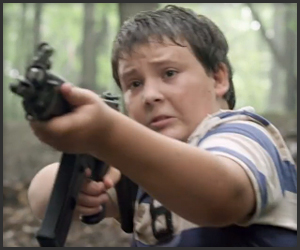Ok, so there were a few too many films at TIFF too close
together to review each individually in great detail. Here’s what you get
instead.
Blancanieves
This Spanish film updates the well worn (especially this
year) Snow White fairy tale to 1920s Spain in the world of matadors and
bullfight but shown in the style of a silent film from the same era.
It’s a cute gimmick and extremely cheesy but the film
inherits a bonhomie that makes you sort of forgive it for that even if the pace
is considerably slowed. It doesn’t hurt that both of the leads female role are
extremely charismatic though Maribel Verdu does more with her role than
Macarena Garcia is allowed to do with hers.
It contains less of the edge and commentary than Snow White and the Huntsman did earlier
this year but that was never really the point. At least it’s unafraid to throw
off the story elements that don’t work for it; the closest you’ll get to a
Prince Charming here is the implication that Snow White is romantically
involved with one of the drawves.
The End
My second Maribel Verdu film in a row, though she plays a
smaller role.
The End tells the
story of a group of college friends reuniting for a weekend in a cabin in the
woods only to find that upon trying to return to civilization the world has
ended and humanity has literally vanished.
Thankfully this doesn’t turn into a thriller but instead
uses the context to deepen our understanding on the relationship between the
characters and the long term resentments and affections that 20 years of
friendship have allowed to flourish. As the cast members themselves start to
disappear without warning (though there is a clear theme to the timing) the
evolving dynamics between the remainders keeps it from getting stale until a
surprisingly low key finale.
The End, based on
an acclaimed novel by David Monteagudo refuses
to explain what’s going on or how this silent apocalypse works, so this will be
frustrating for anyone expecting full closure. For me though, the somewhat
open-ended nature of the narrative actually helped it along as the audience is
just as lost as the characters.
This was one of the better films at TIFF for me this year.
No One Lives
The Midnight Madness showcase features some of the more over
the top films of the festival and No One
Lives is right up there with them. Ultimately though, I can’t really
recommend this flick from cult director Ryuhei Kitamura.
Kitamura has always been a bit hit or miss with me and after
surprising me with the at-least-competent Midnight
Meat Train, No One Lives is back to his outrageous-for-its-own-sake
style that made Versus such a dull
watch.
This story of a gang of rednecks who kidnap a wealthy couple
only to find they’ve taken on board something even more lethal than they are
could have been extremely fun. Unfortunately the writing kind of wavers in the
no man’s land outside of ‘good’ but not quite
reaching ‘so bad it’s good’.
Genre fans will probably love it though as there’s certainly
no skimping on the violence or the ridiculous nature of some of the kills and
the pace at least zips along very nicely. Unfortunately for me though, I was
thrown out of the film too much by the absurdity of it to really enjoy it.
It does have Lindsey Shaw in it though, so that’s something
at least.
I Declare War
This Canadian film is a cute idea, taking a child’s game of
Capture The Flag and twisting it into a parable about the horrors of war as the
kids indulge in more and more extreme behaviour to win their game.
PK (Gage Monroe) is a decorated general of several campaigns
savouring his upcoming challenge against the formidable Quinn (Aiden Gouveia)
whom he has never competed against before. But when Quinn’s leadership is
usurped by Skinner (Michael Friend), things take a sinister turn as the
long-standing tensions between the PK and Skinner threaten to bubble over into
legitimate violence and Skinner increasingly gets closer to the edge of
madness. As the boys face off, their individual troops get drawn further into
battle and nearer to danger.
The film generally works and is fairly engaging but is let
down a little by some of the performances from the child actors (I know you’re
not allowed to say child actors suck but some of them do in this case) and a
slight issue with tone that keeps it from fully landing. The film is careful
not to go too far into the violence surrounding the children which makes it a
bit less clear what exactly its
trying to say about the horrors or war and the effect it has on the human
spirit. It’s going for a banality of evil kick but seems to be afraid to enter
territory where even much older material like Lord of the Flies stride confidently.
A minor nitpick too about the use of the cliché of the mute ‘ethnic’
participant who is the most efficient of them all and whose closest relationship
is with his dog companion, but only a minor nitpick as this is the only one
whose likeability is never in question.
Overall though, I
Declare War is well worth its 94 minutes.
Painless
Yet another Spanish film for the year, though surprisingly
absent of Maribel Verdu. Did I mention I quite like Maribel Verdu? I quite like
Maribel Verdu.
Painless straddles
two time zones. The first is in the present day as a gifted neurosurgeon
crashes his car, killing his wife and child and whose medical care thereafter
reveals a form of leukaemia he’d been unaware of sending him on a quest to find
his birth parents. The second starts during the Spanish Civil War as locals
become aware of a number of children who are incapable of feeling pain and
promptly institutionalise them. We follow one boy’s journey over years as he is
brutalised and abused and slowly turns into a vicious scarred thug. Naturally
the two threads eventually converge and the relationship between them emerges.
I won’t spoil it here but it doesn’t take much imagination to figure it out.
Perhaps it’s because of the Civil war setting but Painless reminded me a bit of Pan’s Labyrinth (which did
star Mairbel Verdu) in terms of theme and tone, though with less of Guillermo
del Toro’s whimsy.
Certainly the sections set in the past are more effective
but that’s really where the heart of the film wants to rest anyway. It’s a bit
more successful than I Declare War in
wading into the banality of evil question and the effect that the violence of
war has on children but it has more scope to do that in as well.
This is on my list of recommended for this year’s TIFF
In the House
I was always going to like this film, as a fan of Francois
Ozon, but this is a definite step up for the French auteur after last year’s Potiche, which I was a mite disappointed
in.
Germain (Fabrice Luchini) is a French teacher growing
increasingly jaded with his students’ sloppy essay attempts until he comes
across a competent short story written by Claude (Ernst Umhauer) describing a
visit to friend Rapha’s (Bastian Ughetto) home in disturbingly intimate tones.
Intrigued, Germain encourages his charge to insinuate himself further into the
house and reveal more of the voyeuristic secrets he uncovers. As Germain is
drawn further and further in by Claude’s stories, his own wife Jeanne (Kristin
Scott Thomas) is drawn in and things start to spin out of control.
The film is a rare example of a genuine dark comedy (as
opposed to a comedy about dark things) and Ozon balances the humour of Germain’s
increasingly divorce from reality and the subtle darkness of Claude’s
increasingly obvious manipulations. For a director who’s shown himself to be
fond of farce in the past, Ozon is surprisingly restrained here and this
lighter touch allows to tight little plot to comes to a boil without spilling
over.
The Lords of Salem
Rob Zombie is an odd director for me. Sometimes I love his
stuff, sometimes I hate it. I thought his House
of A Thousand Corpses was absurdly fun and his take on the Halloween franchise fleshed out the
series very nicely but was bored beyond belief during The Devil’s Rejects.
Unfortunately, The
Lords of Salem is definitely in the latter camp.
Radio host Heidi (Sheri Moon-Zombie) receives a strange
vinyl record in some fan mail of an act calling themselves The Lords of Salem.
Upon playing it, she becomes increasingly haunted by shocking apparitions that
have something to do with the witches’ coven lynched centuries ago.
To be fair to Zombie, he knows what he’s doing with the
material and I believe the film does represent what he wanted to achieve. The
problem is that it’s just so self-indulgent that I just don’t care. I can
objectively recognise that Zombie is layering on the scares successfully but
because none of the characters involved are remotely likeable I kind of want
Heidi to succumb to dark forces just so we can all go to bed.
There is an audience for this, and they were out in force
during the Midnight Madness session this screened at, so it’s more of a
question of whether you’re one of the specific people Rob Zombie is trying to
get to (hint: if you’re at all like Rob Zombie) as to whether you’ll enjoy this
or not.
Three Sisters
This two and a half hour long documentary about three
sisters living in regional China
is excruciatingly boring and a Herculean task to sit through.
Maybe I’m not cultured enough for this stuff but I loathed
every minute. Especially during the second ten extended sequence of a girl eating
a potato. Worst of TIFF by a long way.
Sightseers
Surprisingly this wasn’t
a Midnight Madness screening,. It was part of Vanguard – so effectively
Midnight Madness but not at midnight.
I walked into Sightseers
expecting something more along the lines of No
One Lives or, probably even more, Eden Lake. Totally wrong.
Directed by Ben Wheatley, of last year’s Kill List fame, Sightseers is a hilariously funny comedy about a young woman whose
new boyfriend wants to take get out from under her mother’s thumb and take her
on a caravanning holiday. Along the way, Tina has the growing realisation that
her beau may in fact just be a serial killer prone to violently disposing of
anyone who contradicts his strict social mores. Rather than be turned off by
the idea though, she starts to see the possibilities of such a style and soon
is surpassing him in his bloodlust.
Yes, it’s a violent film but still a comedy as both leads
beautifully portray the kind of social awkwardness made popular by The Office where they are both so
backwards it becomes excruciating to watch and yet simultaneously hilarious in
how brazen they are in their provinciality.
I do have slight concerns that this sort of thing runs the
risk of coming across as sneering at the lower classes but there’s something
oddly likeable about Tina that makes you root for her even as she expresses
delight at the idea of visiting a pencil museum or serving ‘gourmet’ spaghetti
and sauce for every meal. Combine that with the illicit thrill of watching
people being violently dispatched for doing all those little things that
irritate you in your daily life and you have an enjoyable couple of hours ahead
of you.
Aftershock
Back to Midnight Madness and the screening of Eli Roth’s new
film which was not actually directed by Eli Roth yet is such an Eli Roth film
through and through you’ll forget that he only co-wrote, co-produced and stars
in it. The actual director was Nicolas Lopez who came across in his
introduction as being fairly close to Roth in demeanour though without the
handsomeness.
I swear to God I’ll never know why but I have an odd
affection for Eli Roth. I roll my eyes at his hyper-frat boy hijinks and
accidental misogyny but there’s something so earnest about his efforts that I end
up rooting for him anyway. Yes, he’s completely over the top but he truly loves
what he does and seem to pour all that into his work. Where Tarantino has a
more studied hand with genre material, Roth just throws everything at the wall
and assumes it will stick.
And for what it’s worth Aftershock
is a sign that he’s getting better as a filmmaker even if he’s not there yet. Aftershock, which tells the story of
some tourists who must get to safety and high ground in Valparaiso, Chile,
after a major earthquake creates major carnage, is still the gratuitously blood
soaked material we’ve come to expect but at least it wasn’t as dull as Hostel 2.
It’s also slightly kinder on the ladies this time round, if
only slightly. They at least now have some degree of agency and there are even
points in the film where it’s a woman’s action that drives the story forward as
the men are foundering.
There is still a considerable amount of sloppiness here
though. The film’s three acts are very distinct from each other and the first
act, which is almost nothing but frat behaviour goes on far too long. Things
improve dramatically for the second act as the earthquake hits and the seriousness
of their situation sets in but then falls apart for the third act after
something happens that breaks pretty much all the rules of scriptwriting,
leaving the last thirty minutes without an anchor.
Also, that’s not how tsunamis work.













